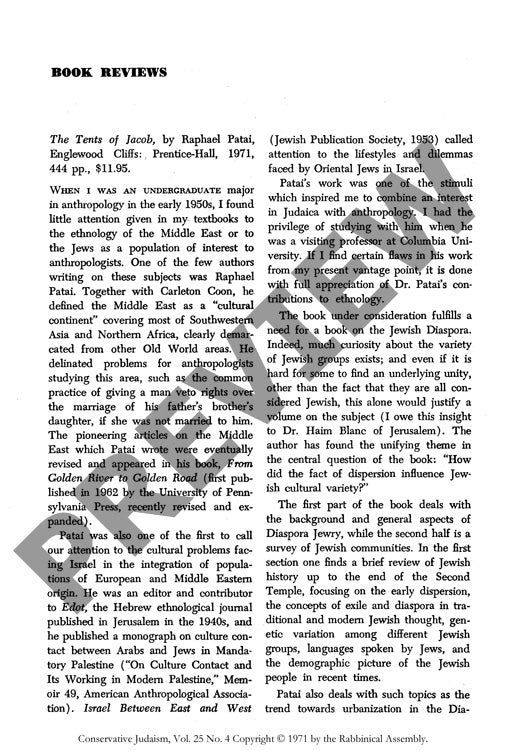Book Reviews
Couldn't load pickup availability
How did centuries of global dispersion shape the rich cultural diversity of Jewish communities? Raphael Patai's "The Tents of Jacob" (1971) ambitiously tackles this question through an anthropological examination of Jewish diaspora populations worldwide, categorizing them into Oriental, Sephardic, and Ashkenazic groups. Drawing on ethnological approaches, Patai meticulously documents processes of linguistic change, behavioral acculturation, and urbanization across geographical boundaries. His extensive research provides valuable insights into diverse Jewish populations and their adaptations, though his analysis reveals notable limitations. The work's conceptual framework oversimplifies assimilation patterns, applies ethnocentric judgments about "cultural excellence," and inadequately theorizes the complex dynamics of Jewish-non-Jewish cultural interactions. Despite these analytical shortcomings, Patai's comprehensive coverage offers an accessible reference for understanding both the unity and diversity within global Jewish communities. The book's thorough footnotes and expansive scope create a solid foundation for deeper research into specific Jewish populations, even as it calls for more nuanced theoretical approaches to cultural contact and assimilation processes.

More Information
-
Physical Description
-
Publication Information
Published 1971
ISBN
-
Publication Credits

